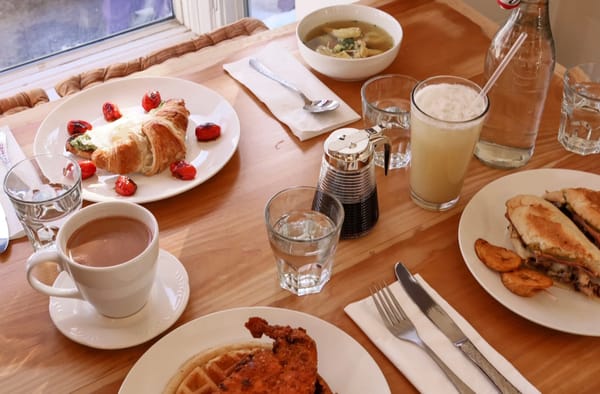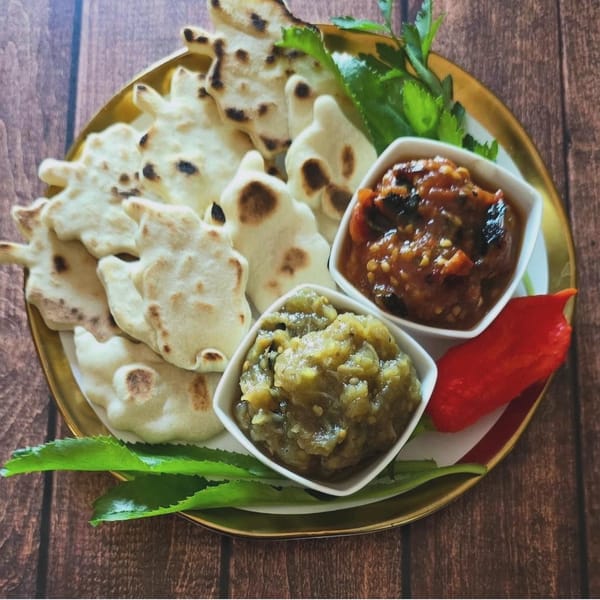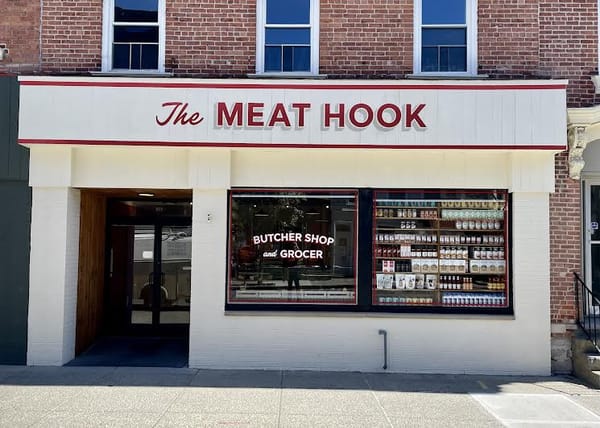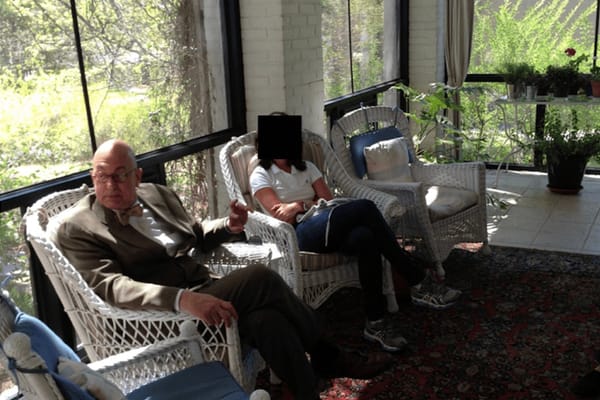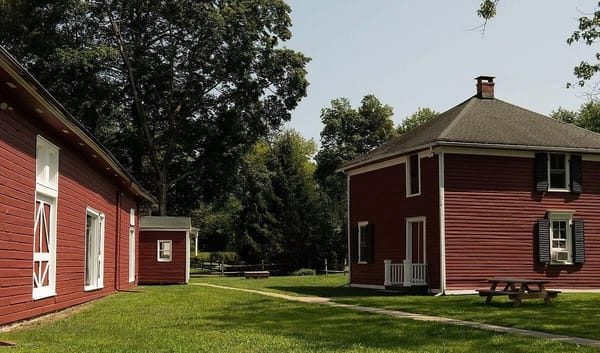
AgriCulture bloggers Peter Davies and Mark Scherzer are the owners of Turkana Farms in Germantown, NY. This week, Peter writes: Ah being a “farmer!” But, what’s in a name, as they say? My first memory of the term is from baby nursery rhymes: “The farmer in the dell The farmer in the dell Hi ho the derry o. The farmer in the dell” And, of course: “Old McDonald had a farm Eey aye eey aye oh…” But this one I found a bit wearing. Anyway, for a child, rhymes are all sound and rhythm and repetition. And not meaning. Strangely, enough even in my early childhood, farming was not associated in my mind with food, even though as children we often rambled from our urban neighborhood in Cardiff, Wales out to a nearby farm to play. It was wartime Britain and food, as far as we were concerned, came from the British government’s food ration book. For us, a farm was a place we went to romp in the pastures and wade in the stream. The closest these forays came to food was eating wild blackberries and gathering what we thought were wild mushrooms, which the adults in the family immediately discarded.. Once in this country, in Hinsdale, Illinois, I found myself, the only non-German, in Zion Lutheran School, enrolled there by my stepfather’s family, the Seesemans. Gradually I realized that many of my schoolmates were from German American farm families. And I found myself playing baseball in pastures hazardous with cow patties; and watching with horror and fascination an oversexed bull bashing through a barn wall; or munching on cracklings as the gory fall pig slaughter took place. And I reluctantly made family visits to distant relatives of my stepfather’s clan who lived on farms, which to my shock and dismay, had no plumbing but instead smelly out houses and outdoor hand pumps and buckets.

I was also learning to see farming in another way. Next to the ubiquitous insult, “you spastic,” being called a “farmer” in the 1940’s and 50’s (as in “Oh, you farmer!”) was one of the worst and most constant put downs amongst my classmates. in the Midwest of the time, being a farmer and, in fact, all things having to do with farms were decidedly not in fashion.. It would be decades before pie cabinets, pickle crocks, antique farm implements, and such would become fashionable, sought-after accoutrements. At that time, they was mere farm trash. America was then leaving its farm past behind. And fast. Strangely enough, it was not till the 1970’s in the post-hippie Berkshires that, for me, the issue of farming came up again. To my surprise I found myself dubbed a kind of virtual farmer. In Great Barrington, just off Alford Road, I somehow fell in with, for a time, a coven of aging hippies occupying a huge, decaying stable building. The grizzled, bearded patriarch of the group, Jerry, I think his name was, somehow fancied himself a theatre writer. Apparently on the basis of my theatre work at the Ark at nearby Simon’s Rock, Jerry had fixed on me as the lead for his musical version of, of all things, Orwell’s Animal Farm. To my surprise, without auditioning I was cast as Farmer Brown and handed a script . Somehow I did not feel like I was central casting’s idea of Farmer Brown. I still sometimes imagine how it all might have turned out, for, after a time with very little actual work done on the project, it vanished into an aromatic mist of Mary Jane, and never came to be. And I was left a Farmer Brown manqué. And now, of all things, I find myself an actual farmer—or a hobby farmer, or a gentleman farmer, depending on who you talk to. I now realize that, although my stint as Farmer Brown was all too brief, it did prepare me for one thing: pigs. As you may recall, it is the pigs in Orwell’s classic who are most resentful of Farmer Brown. It is they who foment revolution amongst the other livestock, and it is they who ultimately become rulers of the farm once Farmer Brown has been disposed of. And it is they who coined that wonderful revolutionary slogan: “All animals are equal, but some animals are more equal than others.” Now with my nine years of hands-on experience with pigs, I believe Orwell got it exactly right. Pigs truly are the enemy within—or as we would call them today “terrorists.” Some of you undoubtedly recall the hell the late Carmen and Miranda put us through a year or so ago, both immortalized in my poem Two Pigs Who Like to Samba (reprinted here). Only Farmer Brown suffered more than we have from pigs. TWO SOWS WHO LIKE TO SAMBA( to be read to a samba beat)

I'm Carmen! I'm Miranda! We're two sows who like to samba! We samba here! We samba there! We samba sans our underwear! But not without our turbans on! Without our turbans all is gone! Our turbans piled with fruits and nuts From tiny grapes to coconuts. While our pen is far from Rio, It shakes, o me! o my! o mio! Like bums and boobs at Mardi Gras. As we twist and turn, our last hurrah, Two sows who love to samba, Known as Carmen and Miranda! As I sat at table last night munching on one of their succulent pork chops, the scenes of havoc and chaos they created passed once again before my eyes, almost spoiling my appetite. But then after a few glasses of wine and coffee and dessert, I, in a brighter frame of mind, began nostalgically thinking back to the farmer in the dell and all the other incarnations of farming that I have passed through my imagination as I—and farms—have experienced constant and unending change. —Peter DaviesFor the complete archive of past AgriCulture blogs, click here.

